When We’re Connected to God, We Can Make It Through Anything: Cleere Cherry Reaves and Larry Loftis

Cleere Cherry Reaves: God is everywhere. He is always up to something. His goodness cannot be explained. It certainly can’t be deserved and you cannot predict it. So you should just live in a way that assumes that He knows exactly what He’s doing, that He’s for your life, and that you would pray for exactly what He’s going to do if you knew all that He did.
When We’re Connected to God, We Can Make It Through Anything: Cleere Cherry Reaves and Larry Loftis – Episode #354
Narrator: Welcome to the Jesus Calling Podcast. Do you struggle with how to fit a faith routine into your life? It’s hard to prioritize time for prayer and reflection in our busy, over-scheduled lives, but when we come up against those moments that stretch us beyond our normal limits and make us question the very foundation of our faith, turning to that connection that we have already been establishing day by day to God can be crucial for us to lean on when nothing else makes sense.
Author and podcaster Cleere Cherry Reaves clung hard to her relationship with God when her son Sledge, who was born three months premature, fought for his life. Author Larry Loftis shares about the incredible bond Corrie ten Boom had with God, and how she bravely trusted His guidance to do what was right as she helped hide Jewish people in her home who were fleeing Nazi oppression during World War II. The relationship these women built daily with God informed their responses to heartache and tragedy.
Let’s hear Cleere’s story first.

Cleere Cherry Reeves: Hello. My name is Cleere Cherry Reeves, and I am from Greenville, North Carolina. I am an author, podcaster, speaker, and I own a company called Cleerely Stated. Also a mother, recently became a mother in July 2021, wife, daughter.
The Beginning of Cleerely Stated
Growing up, I thought I wanted to be a news reporter, and then in college did a few internships and realized that my heart was really to sit with people and their stories and understand where their heart was at and speak to that and maybe less about the research. And I had a kind of a glamorous view of that.
I grew up in a household that certainly prioritized Scripture. My mom owned a Christian gift company, so it was always front and center. And through that, I really developed a personal relationship with the Lord. But I feel like it was probably in high school and certainly in college where it became personal. It became where it was no longer what I knew was good for me, but Jesus really became my best friend.
Miracles in Everyday Life
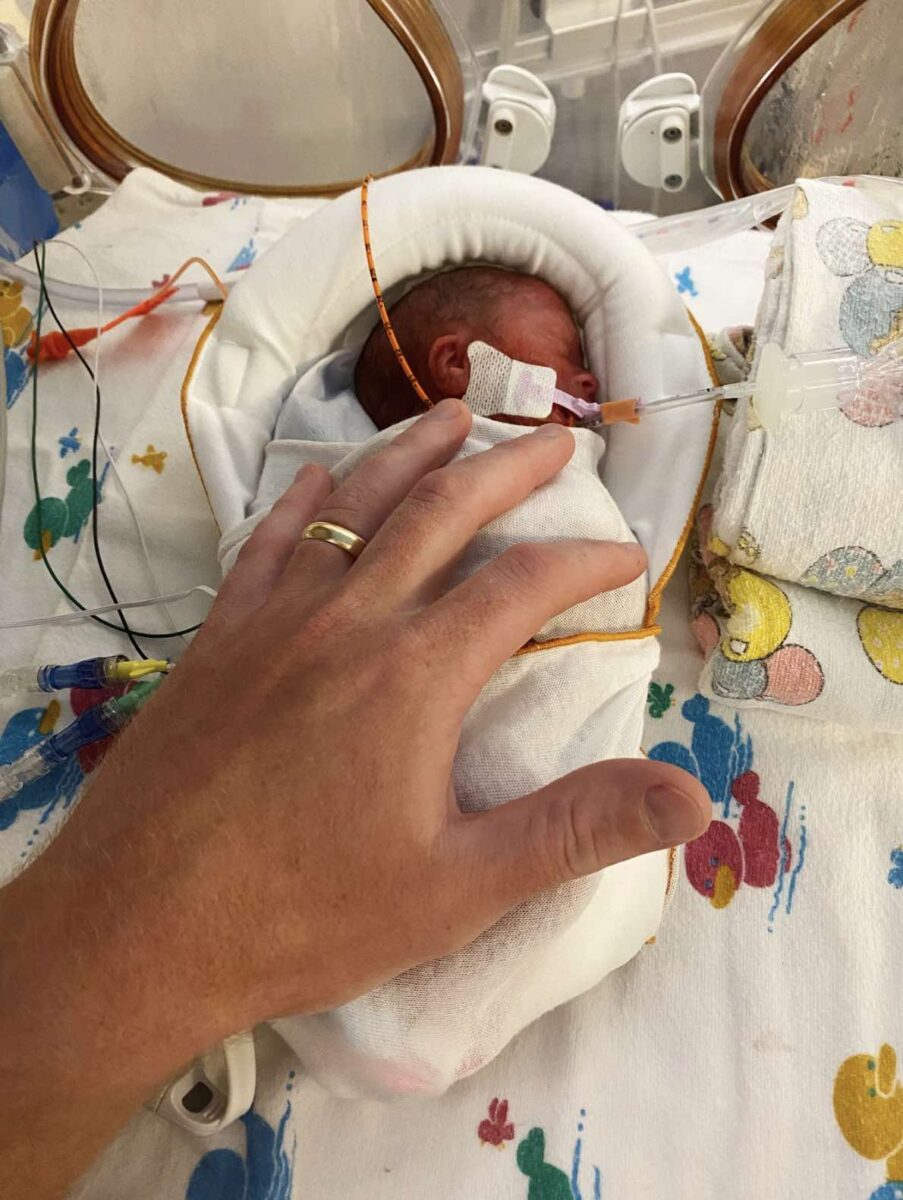
My son Sledge was born three months early. He graced the world a little bit ahead of schedule, and when he was born he weighed one pound, twelve ounces.
I was twenty-six weeks pregnant and headed in for my glucose screening that Friday, July 23rd, 2021, and immediately was rushed to the hospital. Sledge Reaves made his appearance into the world. They told us, based on the ultrasound before he was born, that he was going to have fluid all around his organs and his brain and that things were very dismal.
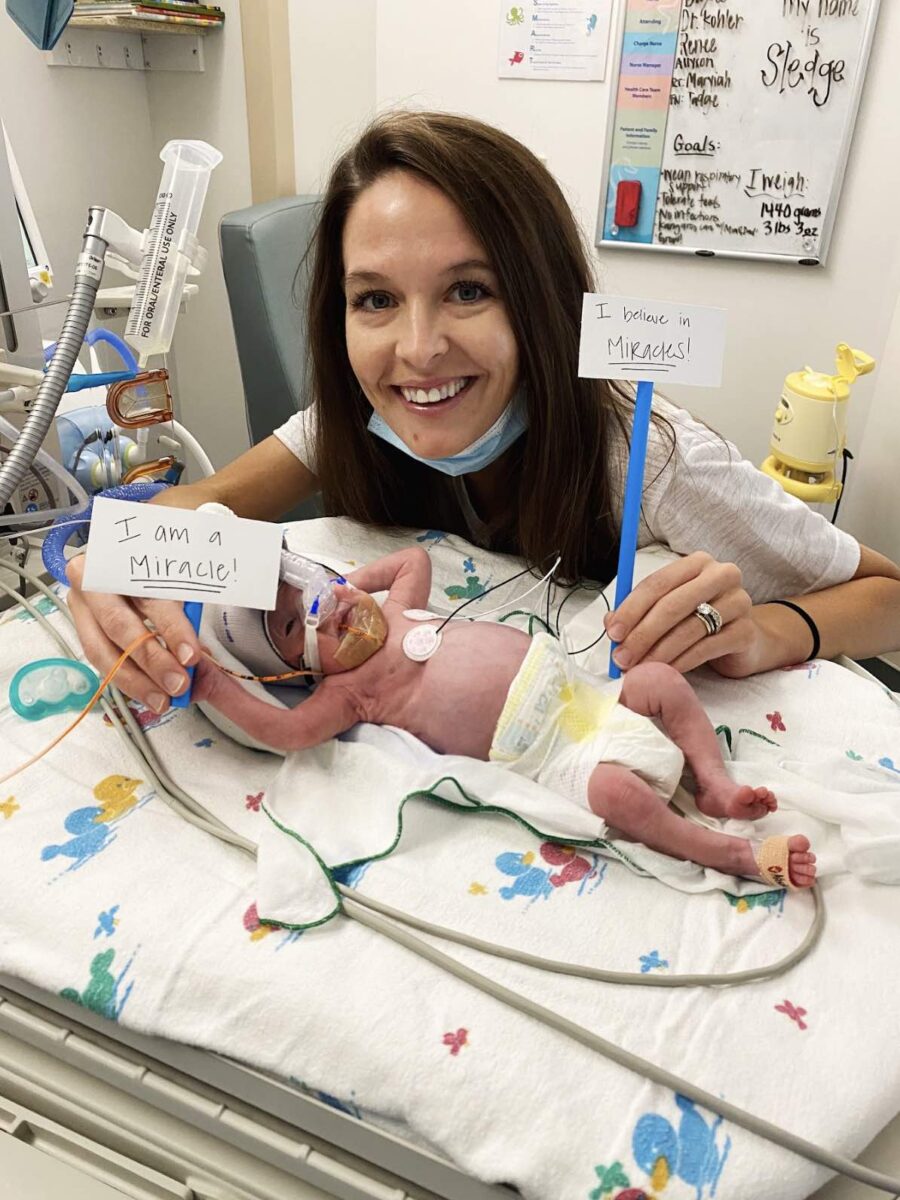
When he was born, that was not the case at all. God had already worked a million miracles on our behalf and on his behalf. And he was born, successfully intubated, and we were in the hospital for almost five months.
We originally came home on oxygen, he had a few apneic episodes, and so we went back to the hospital. And it was quite a journey. You know, throughout that time, it’s one thing, like I said, to talk about depending on God, but it’s another when truly every single day…
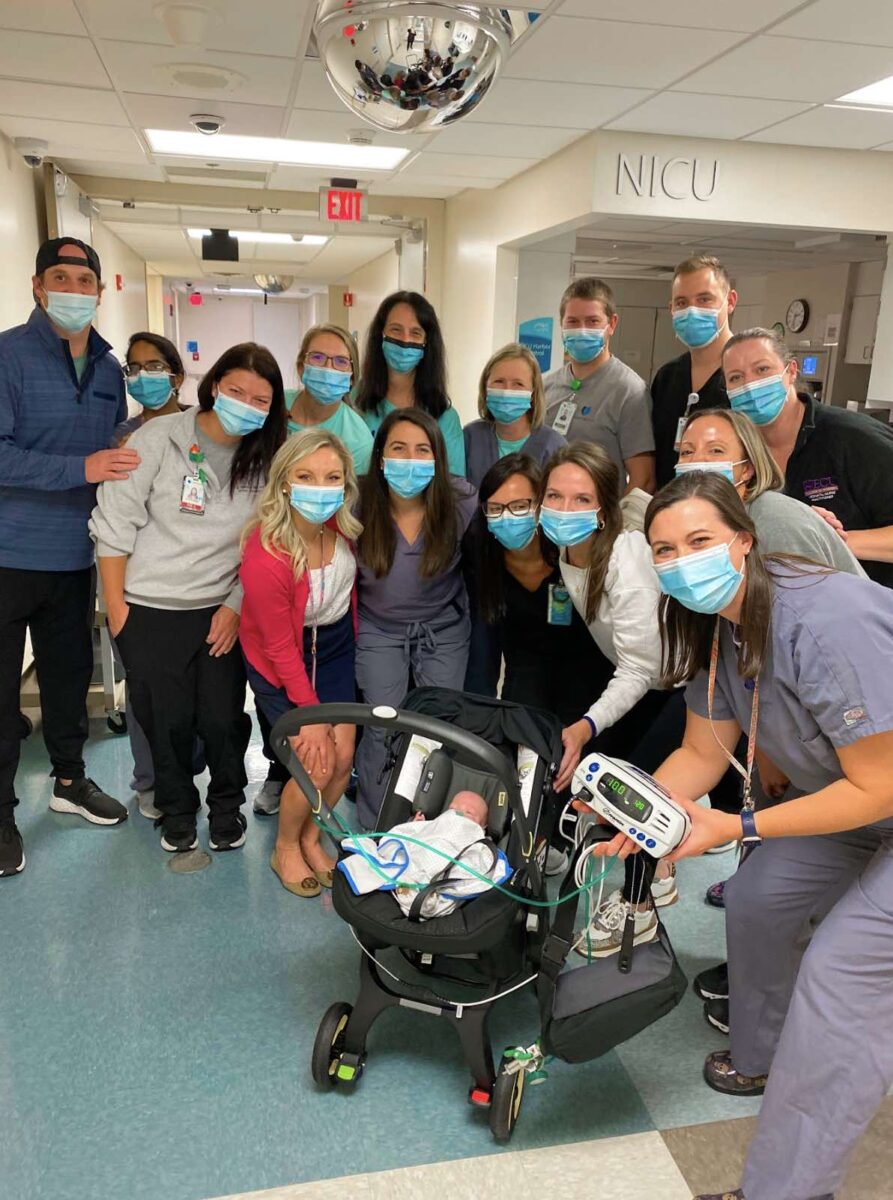
I think you learn how to hold the grief of knowing your child’s fighting for their life every day with the joy that your child is fighting for their life every day. And he’s crushing it and so strong and receiving God’s care and nourishment. And the nurses were amazing. And just seeing all these miracles, but knowing that you could feel the weight and the intensity of the experience and the season that you’re in, while still being a faithful mother and a faithful wife and a faithful friend and a faithful daughter and all of these roles, and do it well and receive that grace.
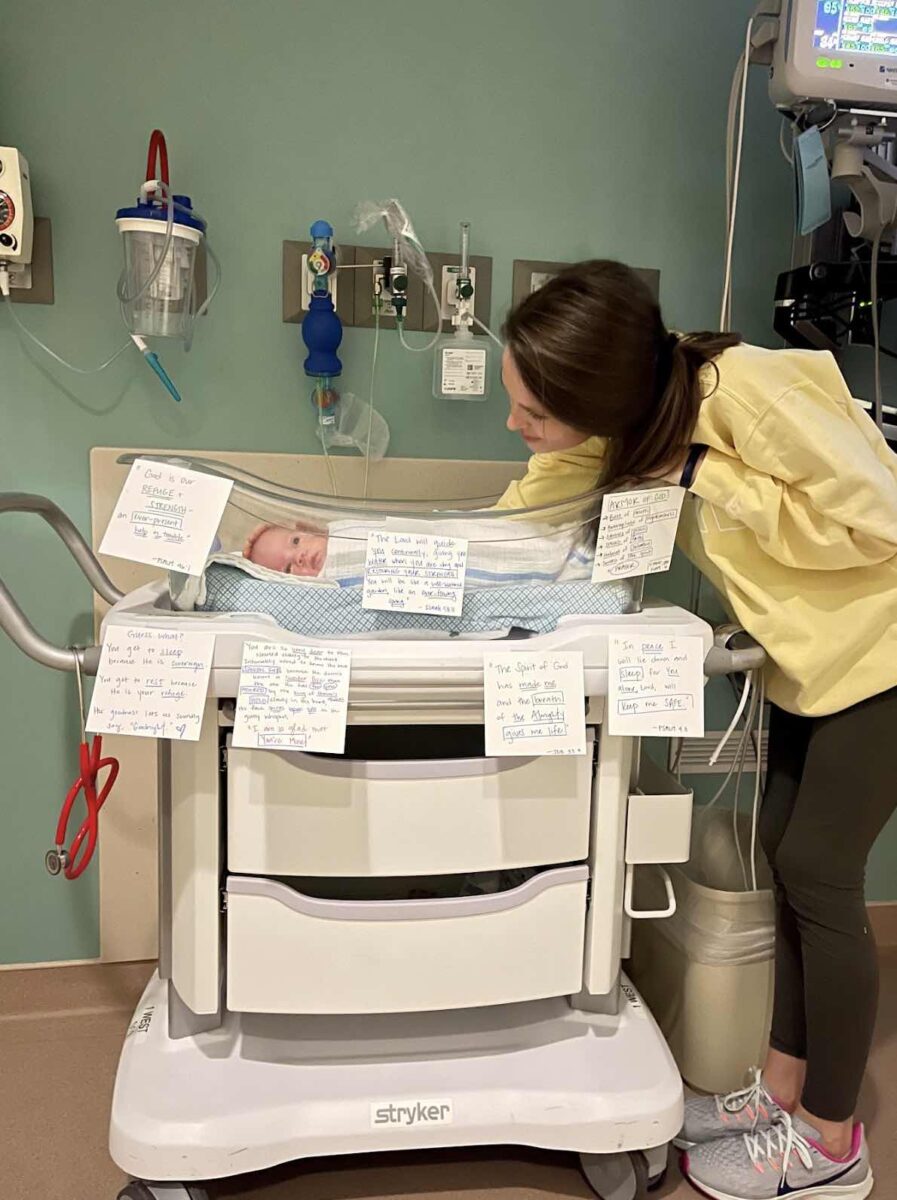
I feel like when we were in the hospital, before Sledge came home and that daily experience, I felt like the veil between heaven and earth was thinner than a sheet. It was so obvious to me that God’s presence is the miracle. That so many things we pray for—and they’re worthy prayers, the desires of our hearts and the things we yearn for and the gifts that we have and all of that. Like, God gave us those with good reason, and perseverance to push through and go after those and pray and show up and all of that, but really journeying with Him.
“I feel like when we were in the hospital, before Sledge came home and that daily experience, I felt like the veil between heaven and earth was thinner than a sheet. It was so obvious to me that God’s presence is the miracle.” – Cleere Cherry Reaves
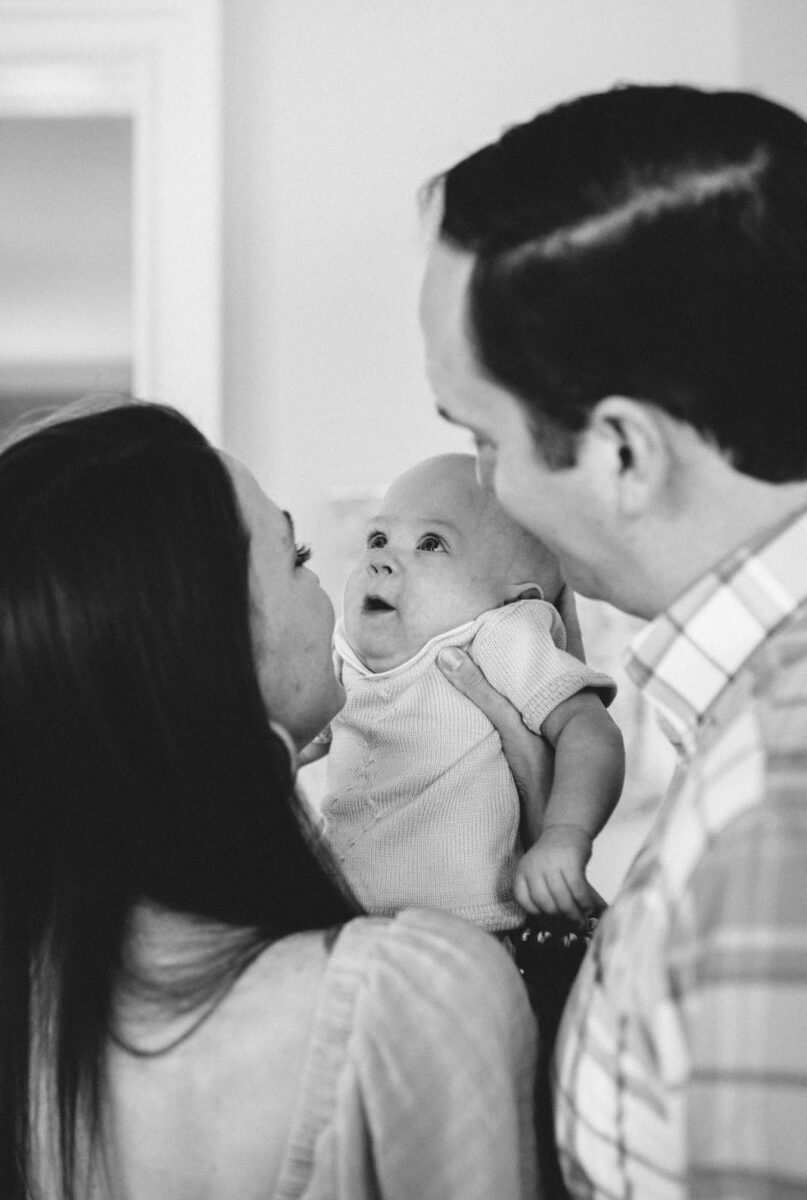
That was such a time in both of our lives [with] my husband, Will, that we really understood what faith was about. I think we thought we really depended on the Lord, but when it’s the person, the treasure you love the most in the entire world, when it’s your child—you operate differently. We were able to really see miracles all over the place in the hospital. We—or at least I did—had a perception of what a hospital is, sickness and struggle and all of that, and the Lord really transformed our perspective. I think we stopped dreading our reality because we learned, We’re going to be here for a minute. This is not going to be a short journey. And we learned how to walk through waves that once fell like tsunamis. We learned how to operate and say, “Lord, this is not our preference. We would love to take him home, but we know that Your ways are higher, Your plan is greater, and You are working miracles all around us. Help us see those miracles.”
“We learned how to walk through waves that once fell like tsunamis. We learned how to operate and say, ‘Lord, this is not our preference. We would love to take [our son Sledge] home, but we know that Your ways are higher, Your plan is greater, and You are working miracles all around us. Help us see those miracles.’” – Cleere Cherry Reaves
Good is Happening Because God is Here

I’ve continuously told Sledge, “I’m never going to let you forget the miracle of you. No matter what you do, no matter what you achieve, no matter what you accomplish, no matter the distractions that surround us, as you grow tall and strong and we get out of here— the greatest miracle is the miracle of you, of your life.” Really understanding that life really is a gift, it’s pure grace. And I think when we operate from that, we really can fight for contentment in any circumstance.
“Life really is a gift, it’s pure grace. And I think when we operate from that, we really can fight for contentment in any circumstance.” – Cleere Cherry Reaves
Miracles are not always water into wine, or the healing that we had expected. Miracles are a million different things in a million different ways. And I think the more that we look out for them, the more that we voice them, the more that we recognize them, the more that we make our conversations about them, the more that we become people who see Him working. I think when we’re people of gratitude, us believers, I think that’s our responsibility. Because if our lives, if people hear our heart—and not that we can’t have grievances, that’s certainly allowed and the Lord wants us to have emotions—but understanding just the grace that we’ve been given and to really fight for a life that operates in contentment and peace that isn’t based on what’s happening in the world or what’s happening to us. Peace that says, “I know my home and I know who’s in control, and I know that He’s with me and I know that He’s equipped me for right here, right now. And so despite all of that, I know that good is happening here because God is here.”
“Miracles are not always water into wine, or the healing that we had expected. Miracles are a million different things in a million different ways.” – Cleere Cherry Reaves
One thing that my husband always says about our journey with Sledge is that he feels like throughout our journey, it was the power of prayer, and God’s army became literally a transportation vehicle. It would literally carry us. And when we felt like we didn’t have the energy or we were struggling or whatever our situation was, it was literally the fortitude that we needed to get to the next place. We felt it from a very physical standpoint. And so we saw the power of prayer worked out in very specific ways. I really believe in the power of prayer and walking that out in real time. So, I’m excited, I know God’s at work, so who knows what He’s up to?
“Fight for a life that operates in contentment and peace that isn’t based on what’s happening in the world or what’s happening to us… I know that good is happening here because God is here.” – Cleere Cherry Reaves
Jesus Listens, January 30th
Mighty Jesus,
All things are possible with You! These powerful words from Scripture light up my mind and encourage my heart. You are training me to live by faith, not by sight. So I refuse to be intimidated by the way things look at this moment.
Teach me how to grow closer to You, Lord Jesus. I delight in knowing You as my Savior and Friend, but I want to relate to You also as Almighty God. When You lived as a Man in this world, Your miraculous signs revealed Your Glory. I know that You continue to do miracles according to Your will and purposes. Please train me to align my will with Yours and to watch in hope for You to work.
In Your powerful Name,
Amen
Narrator: To learn more about Cleere, follow her on social media, and be sure to check out her new book The Miracle of You, at your favorite retailer.
Stay tuned to Larry Loftis’ story after a brief message.
A Meaningful Gift: Jesus Calling for Moms

Give the moms in your life the beautiful gift of encouragement, reassurance, and peace with Jesus Calling for Moms!
Fifty Jesus Calling devotions speak to the power of love, the gift of strength, trusting God’s guidance, and so much more. Also included are: a prayer for mothers from Sarah Young, Scripture verses, journaling prompts and space for women to write their own prayers.
Order Jesus Calling for Moms today!
Our next guest is Larry Loftis—New York Times, Wall Street Journal, USA Today, and international bestselling author of The Watchmaker’s Daughter, the first major biography on Corrie ten Boom, who saved the lives of hundreds of Jews during World War II. Larry recounts Corrie’s story and some of the surprising discoveries he made during his research, and shares the lasting impression of her selfless service and forgiveness of those who wronged not only her, but her country and her people.
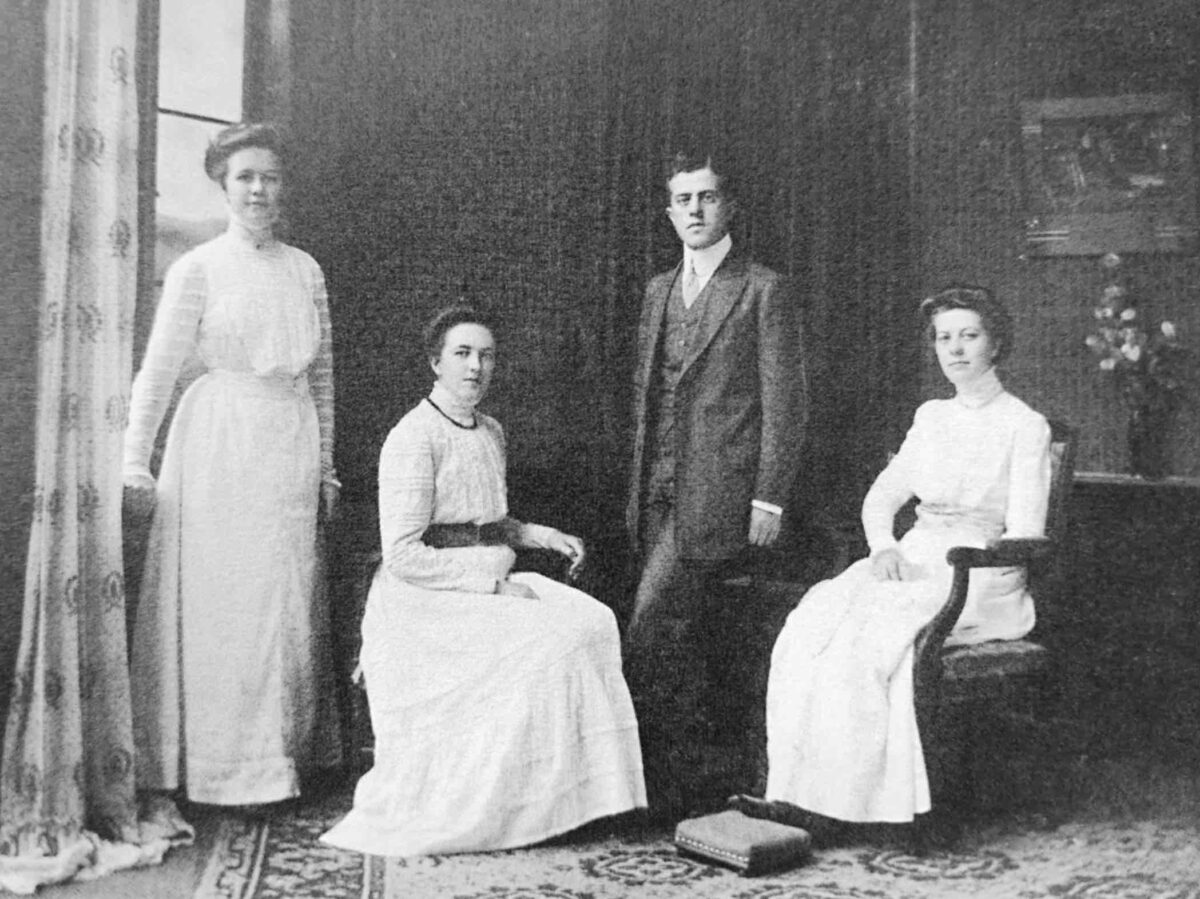
Larry Loftis: Corrie came from a very devout family, Christian family, dating back to her great grandfather. So that lineage, their love for the Jews, their love for Jerusalem, praying for Jerusalem, that goes all the way back to her great grandfather and then we end up with Casper, who is her father—Corrie’s mother had died many years earlier, so by the time we get to World War II, Casper is turning eighty, and Corrie is turning fifty. Betsy was about fifty-four [or] fifty-six around that time. So they’re in this devout family and Casper is a watchmaker. He was definitely the best watchmaker of the Netherlands and possibly the world.
So you have this very godly family as the war breaks out, just watchmakers. [In] their home, the bottom floor was their watch shop, and the two floors above were their residential quarters. Casper would open the day with Bible study. They would pray before every meal. He would typically read a Psalm before or after every meal. Then they pray again at night. This was Corrie’s normal day, just prayer and Bible study. And so when the war breaks out, this is where the rubber hits the road. They had to decide, are we going to help our neighbors? So they did.
A Dangerous, Sacrificial Choice to Help Others
The Germans were after two groups of people, the Jews, but also Dutch boys. If you were between the age of sixteen to about thirty-five, the Gestapo would just snatch you off the street and send you off to Germany to work in a German factory because all of their prior factory workers were now in the military. So if you were a Dutch boy, you had to hide.
The first permanent refugee into the Beje [Corrie ten Boom’s home] is a boy, an eighteen-year-old university student named Hans Poli. He was the one that got them involved in the resistance. It brought danger to Corrie, it brought danger to everyone in the ten Boom home, because if you were caught, it’s not a slap on the wrist. They’re going to send you at best, to a prison, and if not a prison, to a concentration camp, and possibly shot. And he was kind of worried that Corrie would say, “Well, then you’re going to have to find another home. We can’t let you stay here.” But instead she said just the opposite, “Great. I want to be involved. How can we help you use the Beje as your headquarters?”
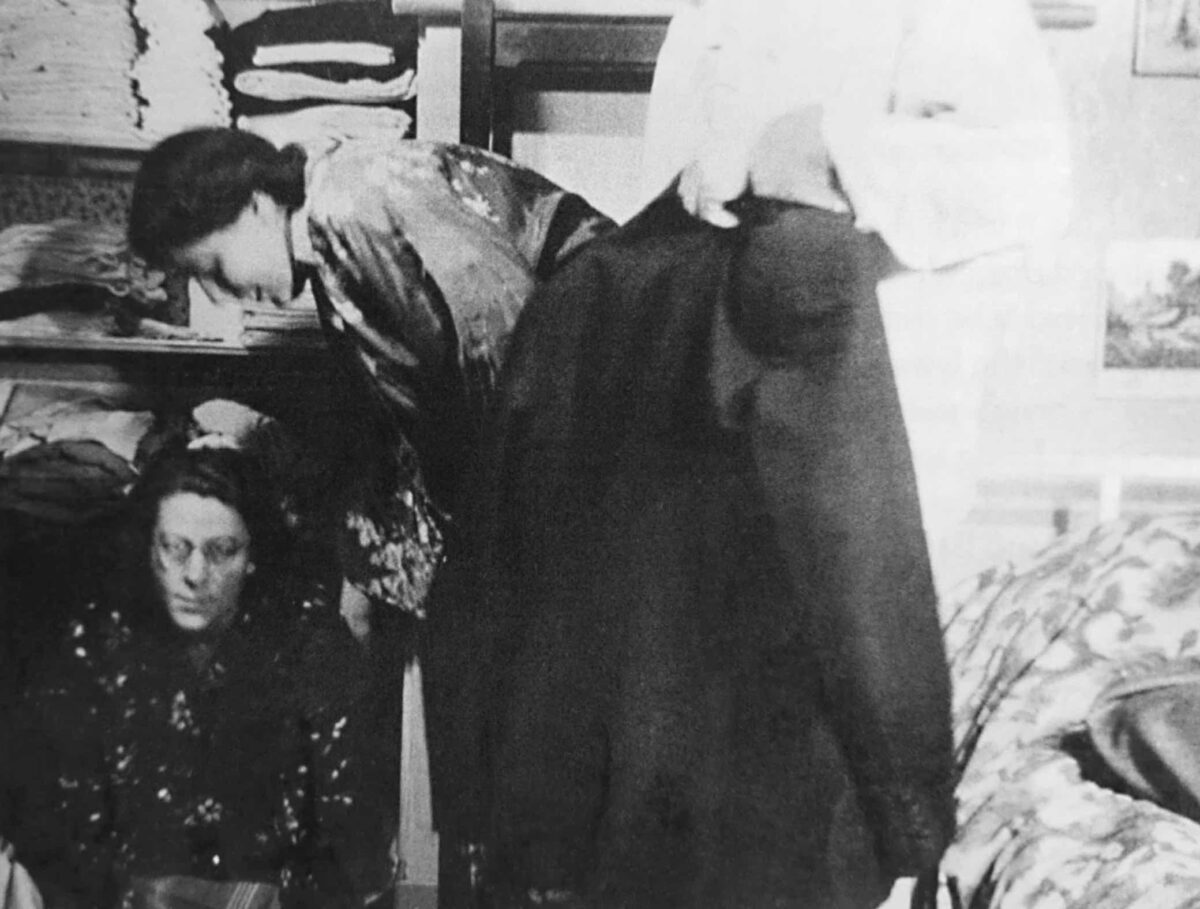
And so that’s how it all started. Then Corrie said, “Well, look, I know someone who might be able to help us.” He comes by, they send an architect. Next thing you know, they’ve built this great hiding place in the back of Corrie’s room. So on any given day, on any given night in their home, they might have three Jews and three divers, or as many as nine. They had about twelve at most on one night.
The dangers were ever present if you were hiding Dutch boys or Jews. So on any given day you have to be careful—just a knock at the door or a German comes in pretending to buy a watch or something, you have to wonder, Is this a Gestapo agent?
One day at lunch, they’re sitting around a dining table, and there were a number of Dutch divers and Jews and resistance workers all eating lunch with the ten Booms. One of the Dutch resistance guys blurts out, “Everybody go on as normal. But there’s a man peering through the window.” Now, that was startling because the dining room was on the second floor. And so Nils was the guy’s name, and he says “He’s washing the windows.” And Betsy says, “Well, I didn’t order the windows washed.” And then somebody else says, “There’s no ledge on the second floor. Where’s he standing?” And then Nils just kind of looks back over there and he goes, “He’s standing on a ladder.” And this man outside peers through the curtain and kind of waves. They know this either has to be an informant or a Gestapo agent. Who else could it be?
So you see, one of the Jews that was in the room at the dining table said, “Okay look, everybody just go on calmly and a few minutes we will sing ‘Happy Birthday.’” And so that’s what they did. They just all started singing “Happy Birthday.” It was very scary. And those kinds of things happened every day.
Willem, who was married and had his own home, was hiding typically one Jew at a time. He had a small place in his study. A Gestapo agent showed up just to check around, and the Jew hides in that study, hides in that little basement. And before the Gestapo agent starts snooping around, Willem—who is a very impressive guy with a lot of gravitas—he just blisters the German about disrupting his study time. And the German was like, “Oh, I’m sorry. I’m sorry, Dr. ten Boom.” Willem essentially runs them out of the house. So that kind of danger hit everybody basically every day for five years.
Incredible Faith From Ordinary People
When we think of people that have to go through things like this, we think Well, they’re superhuman. But these were regular people. And what’s inspiring is that you have these normal people that rise to the occasion.
“When we think of people that have to go through things like [what Corrie ten Boom faced], we think Well, they’re superhuman. But these were regular people. And what’s inspiring is that you have these normal people that rise to the occasion.” – Larry Loftis
They eventually start helping with ration cards. The Jews had no ration cards, so they had no way to get food, and Dutch homes barely had enough to eat themselves. So it was a real problem. They started stealing ration cards by the hundreds, and Corrie was involved in the distribution of those ration cards.
The big picture is that the Gestapo is relentless. When they find a witness, when they arrest anybody, they ask them, “Where did you come from? Who are you friends with? Who did you talk to yesterday?” If you’re really involved, you’re going to be tortured, and then you give up names. They just start tracing those names and they go to those people and then they do the same to them.
Eventually that happens to Corrie’s family. They are betrayed by another Dutchman—which was the worst scenario of all, because this man had thrown his lot with the Nazis thinking they were going to win the war—and to be betrayed by one of your own countrymen is just unthinkable.
So they’re all arrested. They all go to prison and concentration camps. It’s just horrible. Betsy dies in the concentration camp. Her father dies before they get to the concentration camp. Willem dies from tuberculosis that he gets in his concentration camp.
Corrie is supposed to be executed. And so near the end of Corrie’s stay—this was in late November, early December ‘44—they decide that, Okay, the next group to be executed will be all women over fifty. Well, that’s Corrie’s group, so she’s supposed to die. And in fact, they do carry this out. All women over fifty were executed, except for Corrie.
Instead of Bitterness, Corrie Chooses Forgiveness
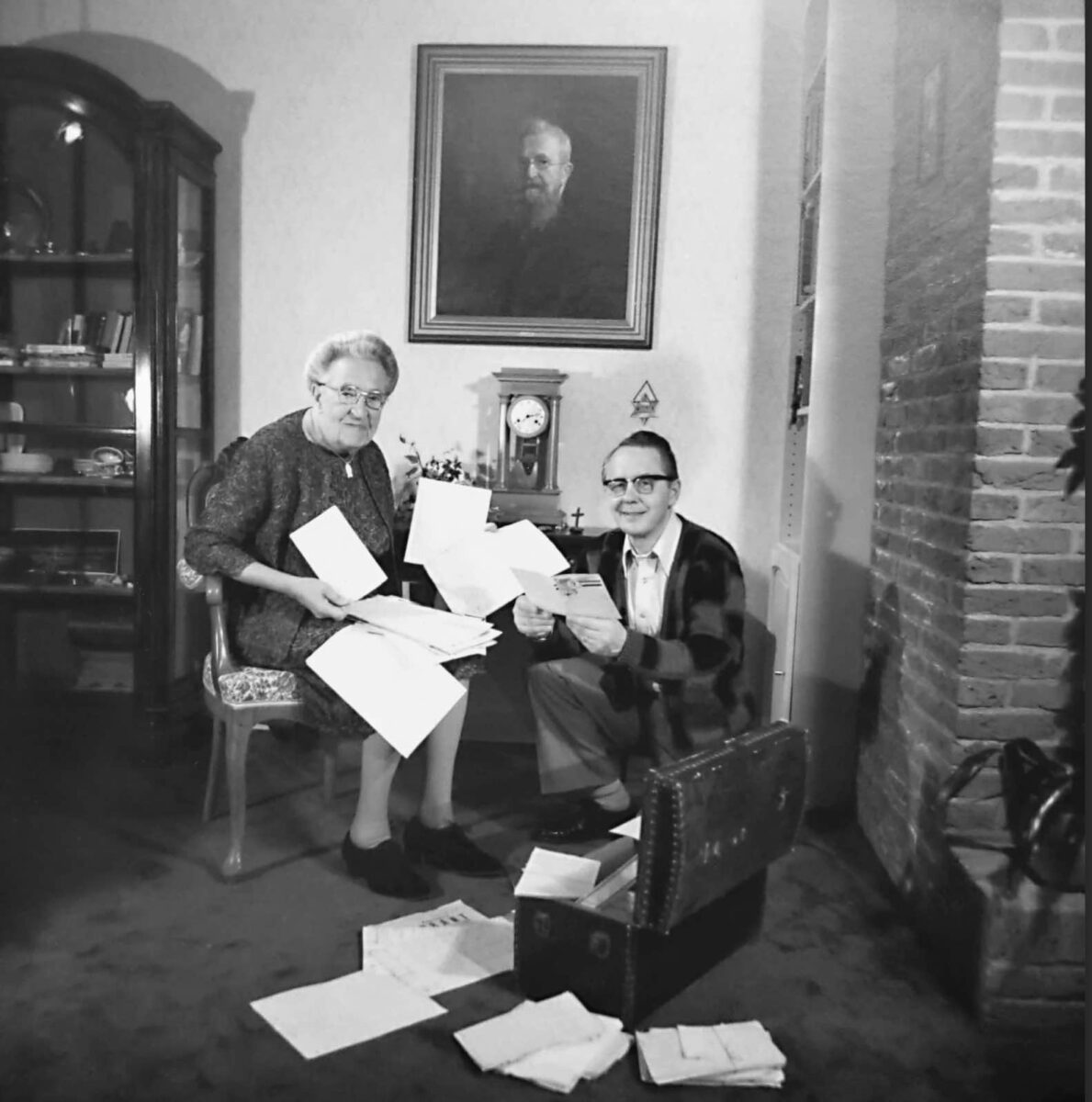
Lots of people hid Jews in the Netherlands, so she’s not unique in that sense. She’s not unique in that she suffered, where she’s unique is this: Corrie forgave everybody. First she forgave the Germans—which she did not want to do—because when they were in Ravensbrück, Betsy had said, “Corrie, we need to come back and help the Germans. They’re the most hurt of all people. There’s nine million that are homeless. They’re crushed. We need to help them.” Her heart softens. And she knows, Look, the Lord forgave me, I have to forgive them. So she forgives the Germans, then she has to forgive the guards at Ravensbrück, and then finally, she has to forgive the worst one of all, which was the Dutchman who betrayed them—the man that was responsible for sending her family to concentration camps which killed her father, her sister, her nephew, and her brother, all because of this one man. And she forgives him.
“Lots of people hid Jews in the Netherlands, so [Corrie ten Boom is] not unique in that sense. She’s not unique in that she suffered, where she’s unique is this: Corrie forgave everybody.” – Larry Loftis
She was part Mother Teresa in that she would go to places just to help people. For example, she starts a home in Harlem, where they could house Dutch people who had been injured by the war—not necessarily physically injured, but emotionally damaged, destroyed. The husband had been killed in the war. The brothers had been killed in the war. Maybe they had been betrayed by their next door neighbor. They had all these emotional hurts. And so they opened this house and Corrie ran it.
She opens the Beje up to help the most notorious group of all, those who had helped the Germans, who nobody wanted any part of. She puts them in her own home and lets them heal, but then her ministry expands because a gentleman shows up one day and says, “Corrie, we found this place that was a former concentration camp.” It was Darmstadt, it was the Darmstadt concentration camp. “We have a place that we think you might be able to turn into a center like you did in the Netherlands.” They turned this former concentration camp, with all the barbed wire and all that was still there, and Corrie turned it into a home of healing.
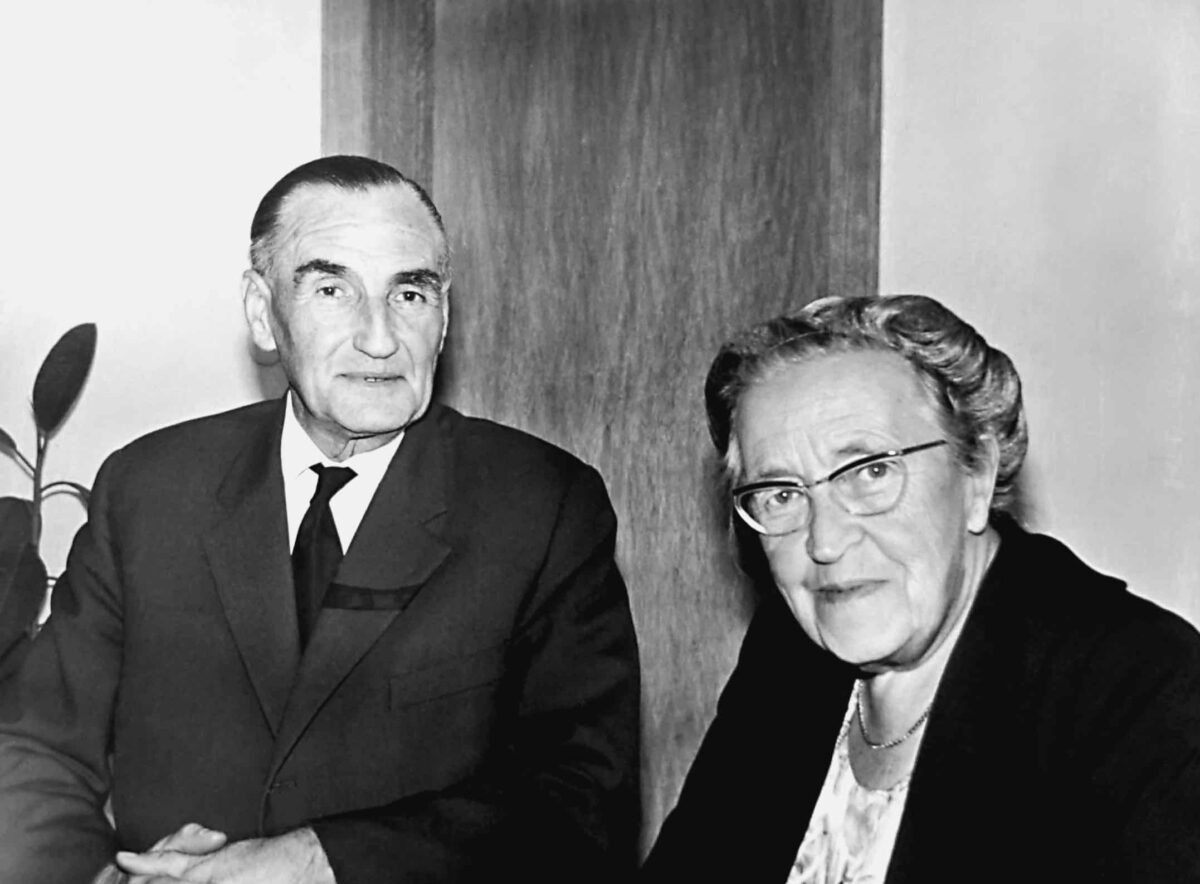
After that, she goes to the U.S. and then she travels the world sharing the gospel, sharing her message of peace and forgiveness and what had happened to her and her family and how the answer was in Christ and He will give you the strength to forgive as He’s done for me and my family. So she spends the rest of her life traveling the world. She hits about sixty-six countries, including going to a leper colony.
“[Corrie ten Boom] traveled the world sharing the gospel, sharing her message of peace and forgiveness and what had happened to her and her family and how the answer was in Christ and He will give you the strength to forgive as He’s done for her and her family.” – Larry Loftis
Corrie is unique in that she was able to forgive the hardest people to forgive, people who were cruel to you, people who betrayed you, people who were responsible for the death of your family. Corrie realizes that, I can’t do it on my own, but with God’s grace and God’s help, I can do it. That’s the big takeaway, because we’re all called with the great commission to share the gospel.
“Corrie is unique in that she was able to forgive the hardest people to forgive, people who were cruel to you, people who betrayed you, people who were responsible for the death of your family. Corrie realizes that, I can’t do it on my own, but with God’s grace and God’s help, I can do it. That’s the big takeaway, because we’re all called with the great commission to share the gospel.” – Larry Loftis
Corrie gives us a firsthand example of how to forgive and forgive people who have really deeply hurt us. And that’s hard to do. It might be a family member, it might be a spouse, it might be an employer or a former partner, people that have hurt us deeply that we find almost impossible to forgive. We can look at what Corrie did to forgive the hardest people in the world, to forgive what she did, and use that as our inspiration—with that example and with God’s grace, we can forgive, too.
“We can look at what Corrie did to forgive the hardest people in the world, to forgive what she did, and use that as our inspiration—with that example and with God’s grace, we can forgive, too.” – Larry Loftis
Corrie’s entire family history was of that kind of devotion. They were people of prayer. And God calls us to pray, and the prayer of a righteous man is effective and powerful, we’re called to do that. And the takeaway with Corrie’s book—with devotions like Jesus Calling and so forth—the takeaway is that God calls us to do that. He decides which prayers to answer, which ones to say yes to. He hears them all, but which ones to say yes to, which ones to say no to. But that’s our job, is to pray. It’s a beautiful story and it’s a great inspiration for us.
Narrator: To learn more about Larry and his books, please visit www.LarryLoftis.com. You can find The Watchmaker’s Daughter wherever you buy books.
If you’d like to hear more stories about finding peace in times of turmoil, check out our interview with Cam Ayala.
Next Week: Dionne Warwick

Next time on the Jesus Calling Podcast, we’ll hear from iconic pop and gospel singer Dionne Warwick and her son Damon, who share about her historical career—and how she trusted God every step of the way.
Dionne Warwick: You know, all the things that He does for me, I am so thankful and grateful for. He’s given me a path to follow and a plan He has for me. I’m following that plan and that path. So whatever comes within the realm of that, I’m supposed to face. I have no problem with that.



